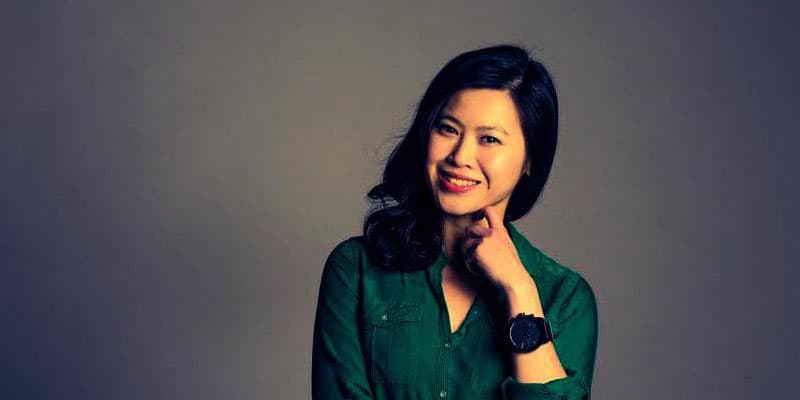Carmen Chan, the sommelier who’s changing how Canadians drink sake

It’s a warm evening in Toronto and the table is filled with truffles, saffron, and other luxuries. It could be French, Italian, or Japanese cuisine, but the glasses on the table aren’t filled with the usual Zinfandel. It’s actually a warm sake recommended by a sake sommelier.
The sommelier’s name is Carmen Chan, and she’s also the founder of Sake Kurabu, a Toronto sake-interest club. Along with her business partner, Cheryl Chow, Carmen facilitates sake pairings for restaurants and educates Canadians on the joys of the Japanese wine.
A restaurant, regardless of whether it’s Japanese, may be interested in serving sake for a pop-up dinner or new menu. In this case, Carmen and Cheryl set up a date to go through the restaurant’s menu with their chefs and managers. They’ll explain how each sake compares in terms of grade, sweetness, and ideal serving temperature and make a recommendation on what sakes to pair with each dish. Finally, during the meal, Carmen and Cheryl take guests through each sake, explaining the tasting notes, origins, and how to pair the food and wine.
Carmen’s vision of Sake Kurabu isn’t to start a sake empire or to populate her client list with Toronto’s most elite restaurants, but to educate consumers. Sake is more than something that goes well with sushi, and she is determined to help others understand that.
“Sake is just as good with steak or French food and can realistically replace any wine or alcohol on the dinner table,” said Carmen.
Carmen and other sake aficionados at the Hakkaisan Brewery. Submitted photo.
Many people have a poor conception of sake. Sometimes, it’s due to a bad first experience with a bottom-shelf sake that tastes like rubbing alcohol. Others just don’t have an interest in trying something new. But as more Canadians realize the beauty of sake, the market will expand and more Japanese brewers will bring their product here, creating a win-win situation.
Carmen’s passion for sake is undoubtable. But this passion actually started from a general love for food and drinks, a belief in lifetime learning, and, more surprisingly, a rational business decision. Before sake, there was wine. Carmen had taken various courses on wine but soon realized that there were too many wine sommeliers already on the market. And so, she looked to other alcohols like whiskey and sake.
“I also thought that being a wine sommelier would be harder as an Asian,” recalled Carmen. “But sake was something I could represent.”
Being Chinese, Carmen could have chosen to represent an alcohol from her own background. But the Japanese classic drew her in. It was easier to drink and could be consumed at different temperatures—a characteristic that is unique to sake.
To start her journey in sake, Carmen flew to New York City to take courses with the Sake Service Institute, a Japanese organization that manages the certification of sake sommeliers. There, she completed both her Sake Advisor and Sake Sommelier exams and learned how sake was made, whether it was past its best date, how to pair it with food, and, of course, how to blind taste.
Once she was certified, Carmen flew off to the birthplace of sake to visit breweries and to also judge the 2016 Fine Sake Awards.
“During the competition, we had three hours to taste 200 sakes and grade them,” Carmen recalled. “It started getting tough to differentiate between them towards the end, but being a guest judge, my scoring didn’t influence the results drastically.”
Carmen was also invited to the Hakkaisan brewery in Japan where she stayed at the brewery’s guest house and had dinner with the president’s mother. She has visited the Katsuyama and the Takenotsuyu breweries too.
A future goal of Carmen’s is to bring people from Toronto and all over the world to tour sake breweries.
“I find that if people enjoy something, they want to know how it’s made,” said Carmen,
Being a sake sommelier isn’t a one-time certification, it involves continuous learning. Fortunately, this includes trying every new sake Carmen can get her hands on. In fact, it’s not only sake that she has to drink but wine too. By jumping back into wine classes, Carmen hopes that studying wine will help build her vocabulary in describing alcohol profiles. The greatest achievement for a sommelier is when the general crowd agrees with your tasting notes but no one had noticed those notes. Building a strong and descriptive vocabulary is the first step.
The continuous learning of Carmen Chan also includes Japanese language classes. By learning sake’s native language, it provides a sake sommelier with the ability to read the label on bottles and understand the tasting notes provided by the brewery. Learning Japanese also lets Carmen talk to the workers and producers at breweries to get first-hand knowledge of how their product is made.
Although Carmen may know more about sake than 99 percent of the population, it doesn’t necessarily mean she can pick the best bottle.
“People always think I can pick the best bottles,” said Carmen. “But everyone’s palette is different and something I enjoy might not be your favourite”
But once Carmen finds out whether you prefer something sweet or something acidic, she’ll likely have just the right sake for you.
Originally published October 24, 2019, updated October 30, 2024
Back to APOLLO MagazineLooking for tenant insurance?
Get no-nonsense coverage that's the best value for your money. Purchase policies from your computer or phone, receive your documents instantly, and save when you buy online.
4.6 rating
Looking for tenant insurance?
Get no-nonsense coverage that's the best value for your money. Purchase policies from your computer or phone, receive your documents instantly, and save when you buy online.
4.6 rating
Relevant articles
Getting insured is as easy as 1 - 2 - 3

Tell us (very little) about yourself
Just tell us your address, your name, email and phone number. And that's it. We'll give you a price in less than a minute.

Pay online easily and securely
You can choose to pay monthly or save money by paying for the entire year in one easy payment.

Get your documents in your inbox - instantly
As soon as you complete your purchase, you'll find your proof of insurance and policy documents waiting for you in your inbox.
Get covered today - it couldn’t be easier
We’ve provided more than 1,000,000 quotes to Canadians just like you. Give it a try!



